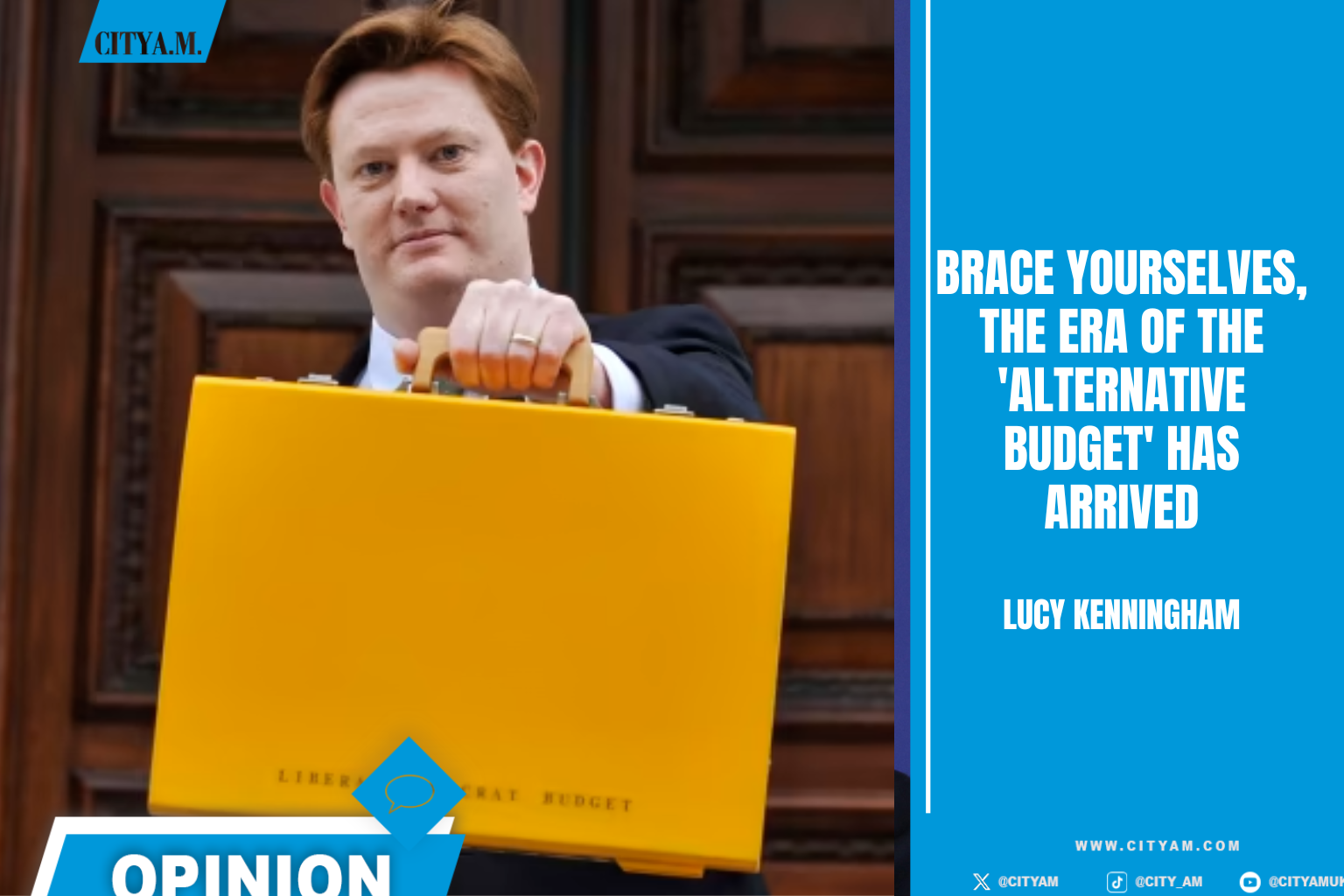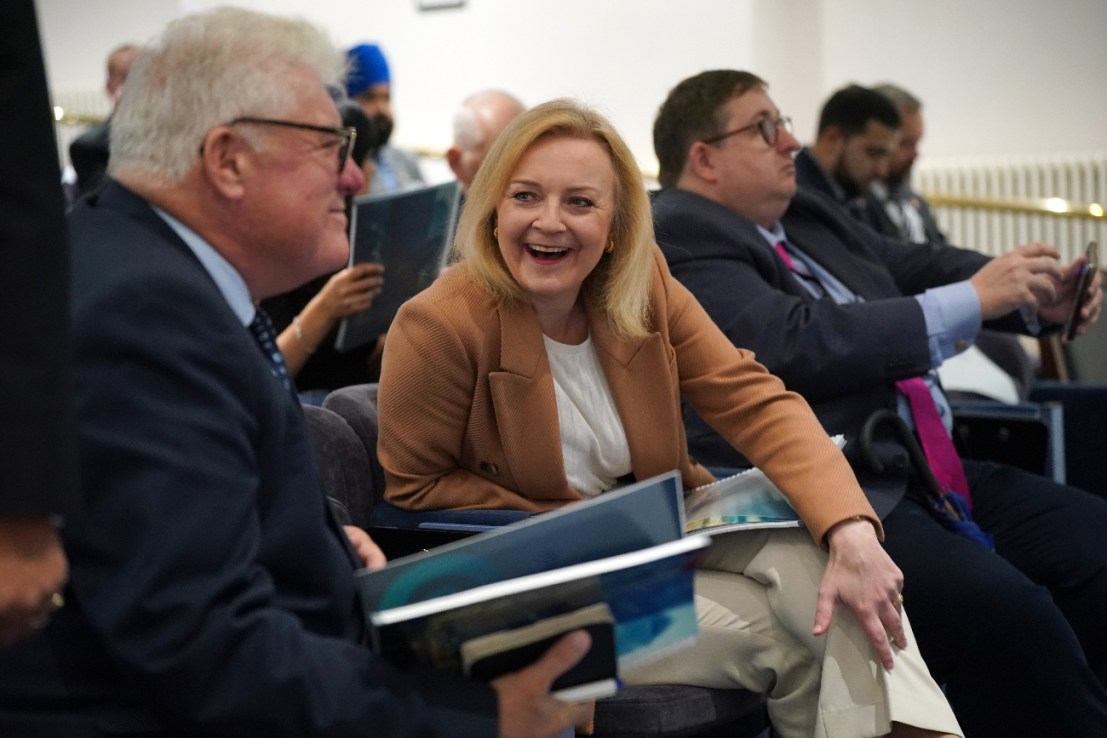Brace yourselves, the era of the ‘alternative budget’ has arrived
It started when Liz Truss’s faction of 60 or so MPs, who go under the banner Conservative Growth Coalition, pre-announced – to drum up anticipation – and then two months later published their Budget for Growth.


Ever looked at the Chancellor’s budget and thought “I could do that better?” Ever mulled over the mechanics of devising a national budget and thought: that would be a fun task for a rainy Sunday. There can’t be many such deranged masochistic econ nerds out there in the real world. But in the Conservative Party it’s a different story.
It started when Liz Truss’s faction of 60 or so MPs, who go under the banner Conservative Growth Coalition, pre-announced – to drum up anticipation – and then two months later published their Budget for Growth.
It continued this morning as the One Nation Caucus published yet another set of policy proposals for the Chancellor to consider ahead of the Autumn Statement on Wednesday – essentially a mini budget of their own.
This wasn’t just a heavy task for the MPs involved; Stephen Hammond MP divulged that some of the policies had been in discussion for a year. Now journalists have been forced to analyse not just one but several budgets.
Growth Bros versus the One Nation Army
Liz Truss’s growth coalition published a dense 54-page graph-laden report with – you guessed it – a focus on tax cuts. Truss has already said she would remove stamp duty and abolish inheritance tax.
Like a dastardly phoenix, this group rose out of the ashes of the disastrous Liz Truss premiership. The gang, which amounts to around 20 MPs and a linked gaggle of ultra-free market international economists, would slash corporation tax from 25 to 15 per cent.
On the other hand, One Nation Caucus spokesperson Stephen Hammond said Conservatives would, in theory, like to cut taxes, but “at the heart of our group is fiscal responsibility” – implying a corporation tax cut would be, uh, irresponsible.
Instead, the One Nations have proposed removing taxes on plant and machinery for research-intensive companies in order to stimulate growth.
The “sensible” gang’s main focus, however, is on house building. They want to quite radically introduce a tax on second homes that aren’t lived in for more than three months of the year. Hammond was keen to stress that this wasn’t a tax on second homes or rented properties; it’s a tax on assets primarily aimed at overseas buyers who buy up London houses as investments.
The group of centrists would also permit first-time buyers to put up to 25 per cent of their pension savings tax-free into a deposit for purchase of their first home. Arguably, this would only affect wealthier buyers – but perhaps that’s the idea.
Whilst Truss has said she would abolish stamp duty, One Nation Tories want to keep it as an incentive for local authorities to match advisory targets – thereby increasing the amount of stamp duty they can keep. This, Hammond explained, would mitigate fears from locals about overloading public services as new homes are built.
The Growth Bros by contrast do not go too hard on homebuilding – though they would like to significantly loosen planning rules to permit higher rates of house building and introduce time limits (of up to 75 per cent cuts) for how long applications can be considered.
They would also freeze minimum wage and make it easier and cheaper to make workers redundant. Meanwhile, the 1N Conservatives (yes, really – they refer to themselves this way) want to prevent poorer people paying proportionately more in income tax by simplifying the tax system and replacing different taxes on earnings, dividends and benefits with one new tax.
Their ‘budget’ is also fixated at trying to win back young voters, Hammond explained, which would be prudent as the manifesto happened to be published on the day that the Young Conservatives formally disbanded. Nationally, only eight per cent of 18-25 year olds back the Conservatives and only 13 per cent of 25-49 year olds do.
The goal of Truss’s gang is growth – specifically, an extra 23 per cent of growth by 2043. Oh, and also preventing Poland from overtaking the UK in terms of average income by person, which they currently predict will happen in 2030. Shiver.
It didn’t land too well though, even with the right of the party. As the Spectator’s Ross Clark said: “Tax cuts are all very welcome – though a little tricky to achieve when you have a deficit and ballooning debt which is already costing you over £100bn a year in debt interest.” The One Nation manifesto, though “sensible” in Hammond’s words, did not garner too much attention either. Perhaps we should just wait for the actual chancellor to deliver the autumn statement.
Or perhaps it’s because it was relatively niche for a set of proposals only eight-bullet points long. One of these eight, for example, was devoted to championing the cause of building on top of railway stations. This has apparently been a successful approach for yielding significant numbers of new homes in densely populated cities in Canada and New York .
The Growth Bros instead throw in the wild card of scrapping the fracking ban – pro-business, sure, but a little out of place amid the slew of very significant tax cuts.
How to write a budget
| Liz Truss’s Growth Bros | Damian Green’s One Nation Army | |
| Gather a group | Rocket emoji-loving free marketeer cowboys | The “Sensible” gang |
| Rogue player | Fracking | Building houses on top of railway stations |
| Central thesis | Growth/tax cuts | Build more homes |
| Target audience | Libertarians | Young Tories |
There is nothing that symbolises the split personality of the Conservative Party as much as the number of factions currently conniving.
Hammond wouldn’t be drawn in on which faction would publish the next alternative budget.
But as he conceded there are still 48 hours before the budget is announced – so City A.M. has put together this handy guide to what you could expect if they follow suit from their rivals.
The China Research Group
Hijacked by an alleged spy, this alternative budget proposes breaking trade links with the US and removing the blue and white from the British flag.
The Common Sense Group
These guys represent the “silent majority of voters” who are “tired of being patronised by the bourgeois elite” and was established in 2020. They are anti-woke and want to talk about it.
“With opportunities provided by Brexit, the time for a refreshed national conversation on the defining issues of our time — nationhood, community, migration, the rule of law and public order — is now”.
Notable members are Lee Anderson, Tom Hunt, Danny Kruger and Brendan Clarke Smith.
Likely proposals include tax cuts for schools that ban the scourge of woke teaching – if you’re teaching nine year olds critical race theory and suggesting their gender may not be the same as their sex, you don’t qualify. Also, penalties for proponents of woke spoons.
The Conservative Democratic Organisation
This band of jovials formed after Boris Johnson resigned as prime minister and Rishi Sunak was, in their words, “coronated” as PM. The group includes non-Conservatives. It is backed by Lord Peter Cruddas.
Stated beliefs include democracy. Related budget proposals are unclear.
The Young Conservatives
Although this group were sadly disbanded, policies could have included goals such as abolishing tuition fees for one degree and one degree only: PPE when taken at the University of Oxford. Unless you do it at Wadham College.



